- Home
-
About
 Fidelity & Excellence
Fidelity & ExcellenceThomas Aquinas College is unique among American colleges and universities, offering a faithfully Catholic education comprised entirely of the Great Books and classroom discussions.
-
A Liberating Education
 Truth Matters
Truth MattersTruth, and nothing less, sets men free; and because truth is both natural and supernatural, the College’s curriculum aims at both natural and divine wisdom.
-
A Catholic Life
 Under the Light of Faith
Under the Light of FaithThe intellectual tradition and moral teachings of the Catholic Church infuse the whole life of Thomas Aquinas College, illuminating the curriculum and the community alike.
-
Admission & Aid
 Is TAC Right for You?
Is TAC Right for You?Do you enjoy grappling with complex questions? Are you willing to engage in discussions about difficult concepts, with the truth as your ultimate goal?
-
Students & Parents
 Mind, Body & Spirit
Mind, Body & SpiritThere is always something to do at TAC — something worthwhile, something fulfilling, and something geared toward ever-greater spiritual and intellectual growth.
-
Alumni & Careers
 What Can You Do with a Liberal Education?
What Can You Do with a Liberal Education?Nothing speaks more to the versatility of the College’s academic program than the good that our alumni are doing throughout the Church and the world.
- Search
- Giving
Meet the 2024 California High School Summer Program Prefects (Part 2)
In our last Summer Blog post, we introduced you to seven of the prefects for the 2024 California High School Summer Program. We now continue the introductions ...
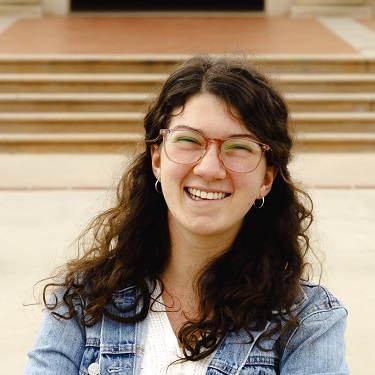 Despite having four older siblings go to Thomas Aquinas College, Gianna Huckins (’26) of Auburn, California, wasn’t always so sure she wanted to follow in their footsteps. “Everyone back home was saying ‘Oh yeah, another Huckins, of course she’s going to TAC,’” she recalls. “So, I thought, ‘That’s not going to happen.’” While visiting the school for her brother’s graduation, however, she saw something that made her reconsider. His class’s graduation had been delayed for a year due to the pandemic, but despite the elapsed time, its members remained remarkably close. “I was able to see how, even after a year of being gone, everyone was still really good friends and really cared about each other,” Gianna says. When she attended the Summer Program in 2021, she saw that those friendships had grown out of the College’s use of the Discussion Method, its spiritual life, and its tight-knit sense of community — attributes she looks forward to sharing as a program prefect.
Despite having four older siblings go to Thomas Aquinas College, Gianna Huckins (’26) of Auburn, California, wasn’t always so sure she wanted to follow in their footsteps. “Everyone back home was saying ‘Oh yeah, another Huckins, of course she’s going to TAC,’” she recalls. “So, I thought, ‘That’s not going to happen.’” While visiting the school for her brother’s graduation, however, she saw something that made her reconsider. His class’s graduation had been delayed for a year due to the pandemic, but despite the elapsed time, its members remained remarkably close. “I was able to see how, even after a year of being gone, everyone was still really good friends and really cared about each other,” Gianna says. When she attended the Summer Program in 2021, she saw that those friendships had grown out of the College’s use of the Discussion Method, its spiritual life, and its tight-knit sense of community — attributes she looks forward to sharing as a program prefect.
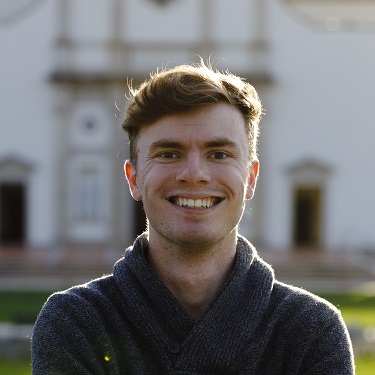 A senior and a returning prefect from Oakton, Virginia, Ricardo Madan (’24) came to TAC for more than the books. When searching for a college, he “wanted a well-rounded experience,” he says. “I wanted to meet good people, to create good habits, pray, grow in my faith, and grow in friendships that would be lifelong.” The prefects he met at his Summer Program embodied those qualities and more. “They seemed like some of the most well-rounded individuals I had ever come across, and they were how I wanted to be,” he says. In particular, he was delighted by the prefects’ athleticism, given that the College is more known for its academics. “I was pleasantly surprised by how interested in sports people were, and how good they were too!” Ricardo’s love of sports has continued through his years at the College, with intramural soccer, basketball, and football all having dedicated seasons.
A senior and a returning prefect from Oakton, Virginia, Ricardo Madan (’24) came to TAC for more than the books. When searching for a college, he “wanted a well-rounded experience,” he says. “I wanted to meet good people, to create good habits, pray, grow in my faith, and grow in friendships that would be lifelong.” The prefects he met at his Summer Program embodied those qualities and more. “They seemed like some of the most well-rounded individuals I had ever come across, and they were how I wanted to be,” he says. In particular, he was delighted by the prefects’ athleticism, given that the College is more known for its academics. “I was pleasantly surprised by how interested in sports people were, and how good they were too!” Ricardo’s love of sports has continued through his years at the College, with intramural soccer, basketball, and football all having dedicated seasons.
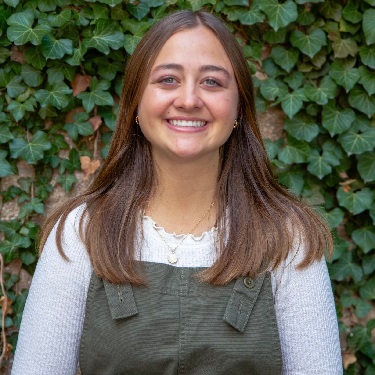 Nancy Reichert (’23) grew up in Golden, Colorado, among the rugged mountains and cold, clear streams. Her home’s natural wonders fostered in her an intense appreciation of beauty, which developed into a love for truth when, at the 2018 Summer Program, she read Boethius’s Consolation of Philosophy. “It really opened my eyes to just how beautiful truth can be,” she says, adding her name to the long list of those for whom deeper love of truth began with that great work. This realization of how beautiful the truth is came along with a recognition of new truths about beauty when the Summer Program gave her “an experience of people pursuing beauty in a way that I had never seen before.” That experience was an oft- repeated one during her time at TAC, and the pursuit of beauty has taken many forms for Nancy in the time before and since, including hikes, long bike rides through California’s mountains, and musical experiences as both a listener and a pianist.
Nancy Reichert (’23) grew up in Golden, Colorado, among the rugged mountains and cold, clear streams. Her home’s natural wonders fostered in her an intense appreciation of beauty, which developed into a love for truth when, at the 2018 Summer Program, she read Boethius’s Consolation of Philosophy. “It really opened my eyes to just how beautiful truth can be,” she says, adding her name to the long list of those for whom deeper love of truth began with that great work. This realization of how beautiful the truth is came along with a recognition of new truths about beauty when the Summer Program gave her “an experience of people pursuing beauty in a way that I had never seen before.” That experience was an oft- repeated one during her time at TAC, and the pursuit of beauty has taken many forms for Nancy in the time before and since, including hikes, long bike rides through California’s mountains, and musical experiences as both a listener and a pianist.
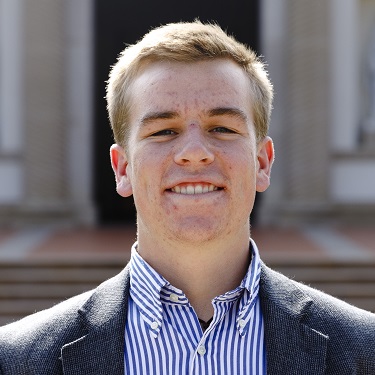 Raised in nearby Santa Paula, California, Pat Daly (’26) spent much of his time growing up playing sports and seeking out new challenges. “The faster I get tired, the better the sport is,” he says, displaying an attitude which has carried him through the obstacles and difficulties of his first two years of college. The Summer Program, however, was not somewhere Pat expected a challenge. As he drove up the road for those two weeks on campus, he was looking forward to fun away from home, and while he found that, it wasn’t all that he found. The classes were often difficult, requiring hard work and study. Discipline was a must. The Summer Program, he found, is more than just a vacation in the mountains. It’s a preview of a college life which can be tough and demanding. However, as Pat says, “If college were easy, it wouldn’t be worth it.”
Raised in nearby Santa Paula, California, Pat Daly (’26) spent much of his time growing up playing sports and seeking out new challenges. “The faster I get tired, the better the sport is,” he says, displaying an attitude which has carried him through the obstacles and difficulties of his first two years of college. The Summer Program, however, was not somewhere Pat expected a challenge. As he drove up the road for those two weeks on campus, he was looking forward to fun away from home, and while he found that, it wasn’t all that he found. The classes were often difficult, requiring hard work and study. Discipline was a must. The Summer Program, he found, is more than just a vacation in the mountains. It’s a preview of a college life which can be tough and demanding. However, as Pat says, “If college were easy, it wouldn’t be worth it.”
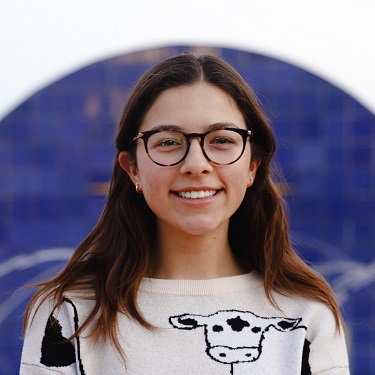 Events occasionally take some time to sink in, and for sophomore Marianna Favarato (’26) of San Antonio, Texas, such was the case with her experience of the High School Summer Program. Leaving the program, she felt the same way she did going in ... ambivalent. Should she go to TAC? The answer “was still up in the air,” she says. A few months later, however, her feelings began to change. “I don’t think I’d completely decided until two months before graduating; it was pretty much the end of the year.” Over that time, seeds planted during the program began to take root. “I really grew to love philosophy and theology,” she says — and the Summer Program had given her a new perspective on these subjects. When she realized that, she made up her mind. She is now a sophomore, and she greatly enjoying both subjects.
Events occasionally take some time to sink in, and for sophomore Marianna Favarato (’26) of San Antonio, Texas, such was the case with her experience of the High School Summer Program. Leaving the program, she felt the same way she did going in ... ambivalent. Should she go to TAC? The answer “was still up in the air,” she says. A few months later, however, her feelings began to change. “I don’t think I’d completely decided until two months before graduating; it was pretty much the end of the year.” Over that time, seeds planted during the program began to take root. “I really grew to love philosophy and theology,” she says — and the Summer Program had given her a new perspective on these subjects. When she realized that, she made up her mind. She is now a sophomore, and she greatly enjoying both subjects.
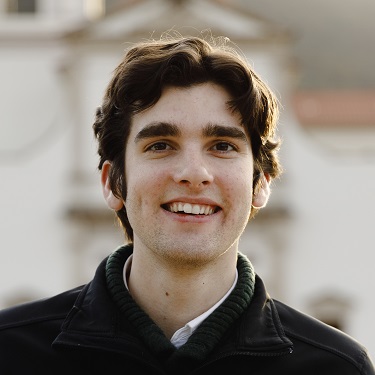 Returning to prefect the program for the second time is fellow San Antonian Richard Goforth (’26). During his first stint as a Summer Program prefect, Richard’s love for the College was rekindled, inspired by the passion of his fellow prefects and the Program’s students. One passion Richard shares with many other students is a love of art. He has been making music since middle school, first electronic music as a DJ and then, during high school, orchestral music and film scores. From there he has become interested in filmmaking. “TAC entertainments afforded me the opportunity to work on these large-scale projects with lots of people who very excited and very willing to work on them,” he says. He has directed two amateur films now while at the College and deeply enjoyed the collaborative and enthusiastic environment.
Returning to prefect the program for the second time is fellow San Antonian Richard Goforth (’26). During his first stint as a Summer Program prefect, Richard’s love for the College was rekindled, inspired by the passion of his fellow prefects and the Program’s students. One passion Richard shares with many other students is a love of art. He has been making music since middle school, first electronic music as a DJ and then, during high school, orchestral music and film scores. From there he has become interested in filmmaking. “TAC entertainments afforded me the opportunity to work on these large-scale projects with lots of people who very excited and very willing to work on them,” he says. He has directed two amateur films now while at the College and deeply enjoyed the collaborative and enthusiastic environment.
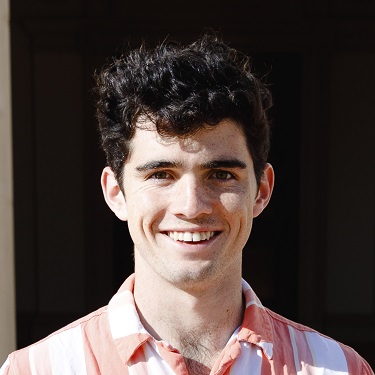 Although he is far from the first member of his family to attend Thomas Aquinas College, Xavier Grimm (’27) of La Mesa, California, still found his own High School Summer Program to be a revelation. What he could not fully appreciate — until he experienced it for himself — was the community life of the College, which fosters the deepest of friendships built on a shared pursuit of truth. “Getting to know what the community life is like in the dorms at the Program, that will tell you a lot about what TAC is about,” he says. Xavier loves the study of language in the College’s integrated academic program. “It’s good for the Discussion Method if we all have a mutual understanding of grammar,” he says. “You need to be able to dissect others’ words — and your own words.”
Although he is far from the first member of his family to attend Thomas Aquinas College, Xavier Grimm (’27) of La Mesa, California, still found his own High School Summer Program to be a revelation. What he could not fully appreciate — until he experienced it for himself — was the community life of the College, which fosters the deepest of friendships built on a shared pursuit of truth. “Getting to know what the community life is like in the dorms at the Program, that will tell you a lot about what TAC is about,” he says. Xavier loves the study of language in the College’s integrated academic program. “It’s good for the Discussion Method if we all have a mutual understanding of grammar,” he says. “You need to be able to dissect others’ words — and your own words.”

